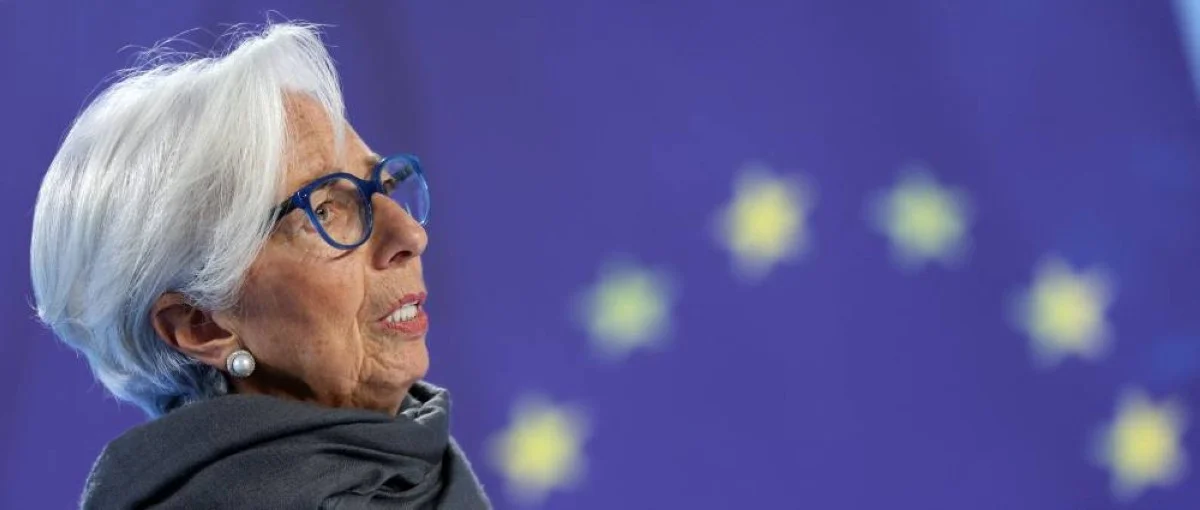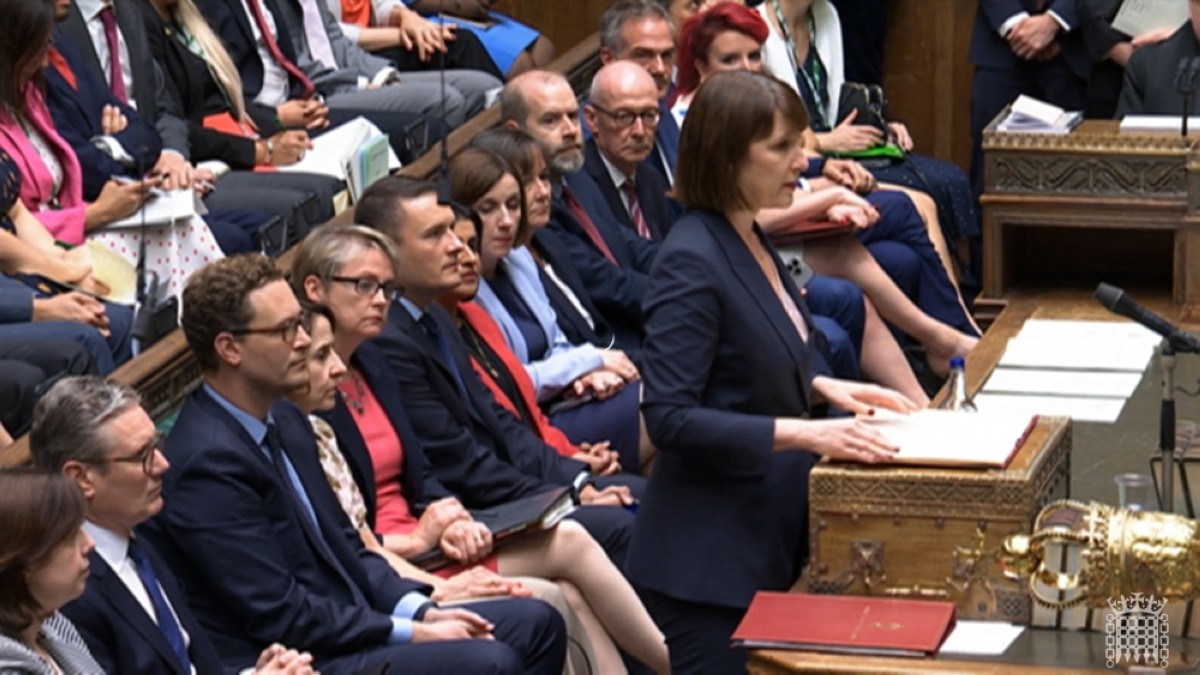ECB, BoE pause again, warn on inflation
FRANKFURT/LONDON: The European Central Bank froze borrowing costs again on Thursday but warned that inflation could pick up again in the near term, in an apparent pushback against market hopes of early rate cuts in 2024.

FRANKFURT: President of the European Central Bank (ECB) Christine Lagarde addresses a press conference following the meeting of the governing council of the ECB in Frankfurt am Main, western Germany, on December 14, 2023. --AFP.
The second consecutive pause keeps the ECB’s benchmark deposit rate at a record high of four percent following a historic streak of hikes to tame runaway prices. The Bank of England also on Thursday held its key interest rate and warned it will remain high to tackle inflation, indicating in contrast with the Federal Reserve that cuts were unlikely any time soon. The British central bank’s monetary policy committee (MPC) voted 6-3 in favour of keeping the rate at 5.25 percent, the highest level in more than 15 years, it said in a statement.
The US central bank had also frozen borrowing costs on Wednesday but signalled that it would start cutting rates next year and sparked a broad markets rally. “Monetary policy would need to be sufficiently restrictive for sufficiently long to return inflation to the two percent target sustainably in the medium term,” stated the minutes from this week’s BoE gathering.
They added: “The committee continued to judge that monetary policy was likely to need to be restrictive for an extended period of time.” UK inflation dropped sharply in October to 4.6 percent, but remains the highest level in the G7 rich nations and more than double the BoE’s 2.0-percent target rate. November data is due next Wednesday.
The Frankfurt institution said rates were at levels that if “maintained for a sufficiently long duration” would make a “substantial contribution” to bringing inflation back down to the two-percent target.
Governor Andrew Bailey, in a letter to finance minister Jeremy Hunt, added Thursday that there was “still some way to go” in policymakers’ efforts to drag inflation down. Inflation had surged to a 41-year peak at 11.1 percent in October 2022, stoked by spiking energy prices after the invasion of Ukraine by major oil and gas producer Russia and sparking a cost-of-living crisis in Britain.
Six MPC members voted in favor of no change—but three called for an increase to 5.5 percent and cited “evidence of persistent inflationary pressures”. The BoE had also frozen borrowing costs at its previous gatherings in September and November, snapping a series of 14 hikes, as inflation slowed. The outlook darkened this week as official data showed the UK economy shrank by more than expected in October in a broad-based decline, hitting reverse as high interest rates took their toll.
Eurozone inflation slowed faster than expected in November to a two-year low of 2.4 percent, after peaking at around 10 percent last year. But the ECB cautioned against declaring victory too soon. “While inflation has dropped in recent months, it is likely to pick up again temporarily in the near term,” it said, amid concerns about rising wages in the 20-nation currency club.
The ECB’s warning will likely be aimed at cooling investor expectations of faster rate cuts in 2024. Speculation had mounted after the US Federal Reserve held its rates on Wednesday and indicated that it expected three rate cuts next year.
The much-sought-after dovish tilt sparked a broad markets rally with Wall Street soaring to record highs. But analysts expected ECB president Christine Lagarde to use her press conference later Thursday to push back against hopes of a similar signal from Frankfurt. “Markets will probably have to correct some of their over-optimistic rate cut expectations once the ECB has spoken,” said Berenberg bank economist Holger Schmieding.
The Bank of England found itself in a similar position on Thursday. It too left its key rate unchanged, at 5.25 percent, and warned that the rate would remain high “for an extended period” to tackle inflation. “Unlike the Federal Reserve, the Bank of England is clearly reluctant to endorse market pricing for rate cuts in 2024,” said ING economist James Smith. - AFP.











